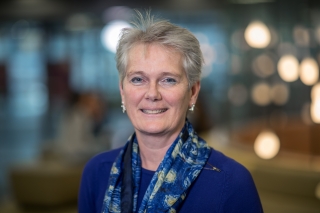‘Corona Boosts the Digitalisation of Public Health and the Medical Sector’
Carmen van Vilsteren states that “we have a good price/quality ratio in healthcare in the Netherlands. We are one of the countries with the best quality of healthcare while from a global perspective, we don’t spend the most money per capita. But there is also a lot of room for improvement, as such, healthcare could still be a lot more efficient.” Whenever people with symptoms come to a specialist, doctors do a number of examinations that fall within their domain in order to determine the cause. If that doesn’t work, patients are sent to another specialist and often everything starts all over again. “This is not only inefficient, but also extremely stressful and incomprehensible for the patient,” she points out.
Analysing data
“Van Vilsteren continues: “This could be done more simply by analysing data and thereby finding correlations in the clinical pictures.” She gives an example: “We know that women who have had high blood pressure during pregnancy are more likely to have cardiovascular and sleeping problems later on. We can only gain these insights by analyzing large amounts of data whereby data from various medical disciplines are combined.”
The data must then be accessible and moreover, it must be able to be collected and analysed. This is not always easy, partly in view of the Dutch privacy law. Despite that, we are making significant steps at the moment. According to her, digitalisation in the healthcare sector has been given a boost by the corona crisis. “We are not only talking about digital communication such as online appointments, but also about remote monitoring and global data platforms.”
Interested in reading the whole interview? Visit the website of Innovation Origins.
Source: Innovation Origins

